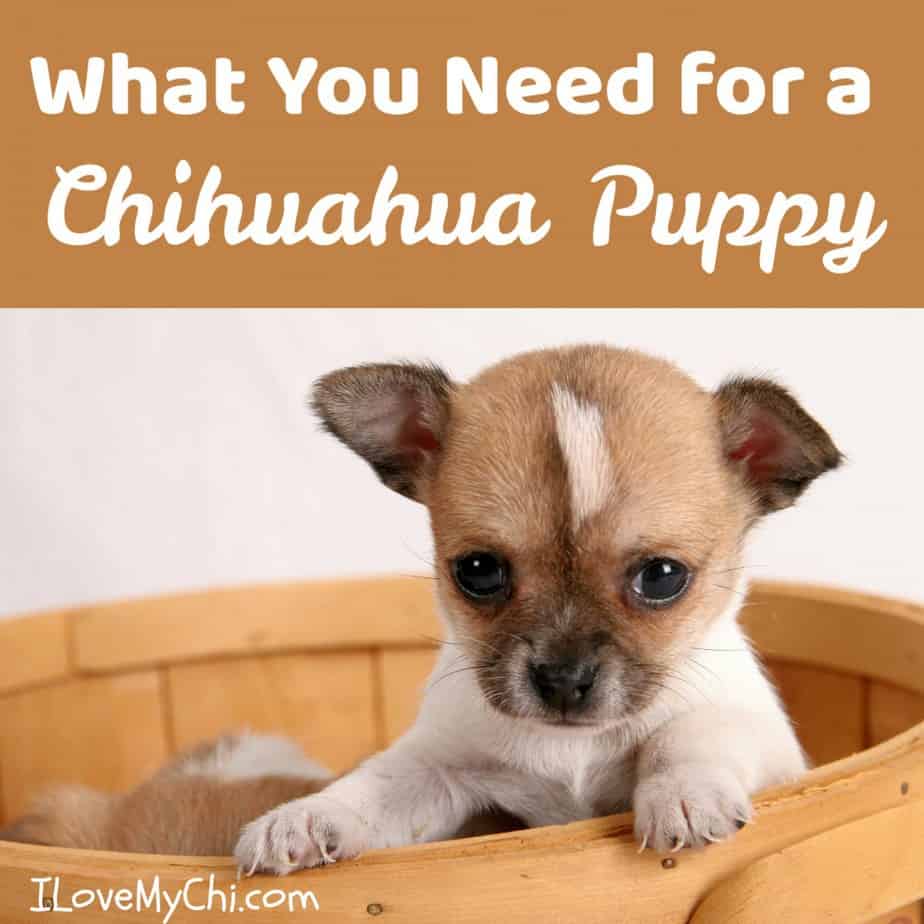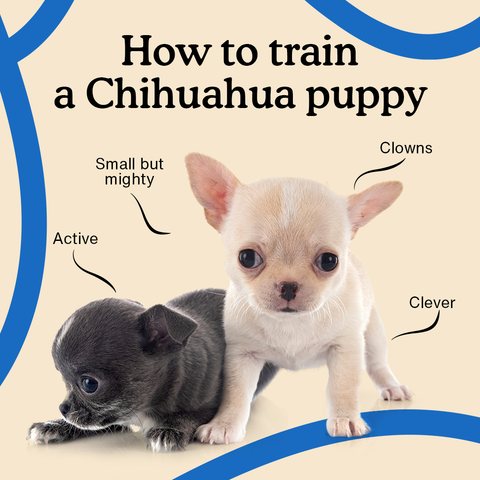As we bring home a lively chihuahua puppy, I am amazed at just how much they require. Did you know that despite their small size, chihuahuas have a reputation for being high-maintenance pets? From their specialized diet to their need for frequent socialization and exercise, there is so much to consider when it comes to caring for a chihuahua puppy.
When preparing for a chihuahua puppy, it is important to understand their background. Descendants of ancient companions to the Toltec civilization, chihuahuas were highly valued and believed to possess mystical powers. Today, they are cherished as loyal and affectionate pets. However, their tiny size means they are prone to dental problems, so regular oral care is a must. Additionally, chihuahuas have a high energy level, requiring daily exercise and mental stimulation to keep them happy and healthy. With the right balance of love, care, and attention, you can provide a fulfilling and enriching life for your chihuahua puppy.
Welcoming a Chihuahua puppy into your home? Here’s a comprehensive list of essentials to ensure a smooth transition for your new furry friend. Start with a cozy bed, non-toxic toys, and plenty of nutritious puppy food. Don’t forget about a comfortable crate, a sturdy leash, and a secure harness for walks. Make grooming a breeze with a brush, dog shampoo, and nail clippers. And of course, complete your puppy’s healthcare needs with a vet check-up and necessary vaccinations. Happy puppy parenting!

What Do You Need for a Chihuahua Puppy?
Welcome to the world of Chihuahua puppies! These tiny and adorable dogs make great companions and can bring so much joy to your life. But before bringing home your new furry friend, it’s essential to ensure you have everything they need to thrive. In this article, we will explore the must-haves for a Chihuahua puppy, covering their basic needs, grooming, training, health care, and more. Let’s dive in and make sure you’re fully prepared to welcome your new bundle of joy!
1. Basic Needs: Housing, Bedding, and Feeding
Every Chihuahua puppy needs a safe and comfortable place to call home. Provide them with a cozy dog bed or a crate lined with soft bedding where they can rest and feel secure. Additionally, make sure to have age-appropriate food and water bowls that are easily accessible to them. Consult your veterinarian to determine the right type and quantity of food for your Chihuahua puppy, as their nutritional needs may vary depending on their age, size, and health.
It’s important to establish a regular feeding schedule for your Chihuahua puppy and ensure they have access to fresh water at all times. Keep in mind that Chihuahuas are small dogs with delicate digestive systems, so it’s crucial to provide them with high-quality dog food that meets their specific nutritional requirements.
Remember to create a designated area in your home for your puppy’s activities, such as eating, sleeping, and playing. This will help them establish a routine and feel secure in their new environment.
2. Grooming and Hygiene
Chihuahuas may be small, but they still require regular grooming to keep them healthy and looking their best. Their grooming routine should include brushing their coat to remove loose hairs and prevent matting. Depending on the length and type of their coat, they may need brushing once or twice a week.
In addition to brushing, it’s important to clean your Chihuahua puppy’s ears regularly to prevent infections. Use a gentle ear cleaning solution and a cotton ball to wipe away any dirt or wax. Trim their nails regularly to keep them at a comfortable length, being cautious not to cut too close to the quick, which can cause bleeding.
Lastly, dental care is vital for the overall health of your Chihuahua puppy. Establish a regular teeth-brushing routine using a dog-friendly toothpaste and toothbrush. This will help prevent dental issues and keep their breath fresh.
3. Training and Socialization
To ensure your Chihuahua puppy grows up to be a well-behaved and friendly companion, early training and socialization are key. Start with basic obedience training, teaching them commands like sit, stay, and come. Use positive reinforcement techniques, such as treats and praise, to motivate and reward them for good behavior.
Expose your Chihuahua puppy to various environments, people, and other animals from a young age to promote proper socialization. This will help prevent fear, anxiety, and aggressiveness in the future. Enroll them in puppy kindergarten or obedience classes where they can learn and interact with other puppies.
Remember to be patient and consistent in your training efforts. Chihuahuas are intelligent dogs, but they can also be stubborn at times. With love, patience, and positive reinforcement, you can mold them into a well-mannered and confident companion.
4. Healthcare and Vaccinations
Just like any other dog, Chihuahuas require regular healthcare check-ups and vaccinations to ensure their well-being. Schedule an appointment with a trusted veterinarian and establish a vaccination schedule suitable for your Chihuahua puppy. They will require vaccinations to protect against diseases such as rabies, distemper, parvovirus, and more.
Aside from vaccinations, regular veterinary visits will allow your vet to monitor your Chihuahua puppy’s overall health, detect any potential issues early on, and provide necessary treatments or preventive measures. You should also discuss flea and tick prevention, heartworm prevention, and any other specific health concerns relevant to your area or your puppy’s breed.
It’s essential to stay up-to-date with your Chihuahua puppy’s healthcare needs to ensure they lead a long, happy, and healthy life.
5. Exercise and Mental Stimulation
Although Chihuahuas are small dogs, they still require regular exercise to stay fit and healthy. Take your Chihuahua puppy for daily walks to provide them with physical activity and mental stimulation. Engage them in playtime activities that keep them active and entertained.
Interactive toys, puzzle toys, and treat-dispensing toys can be excellent tools to keep your Chihuahua puppy mentally stimulated. They love to learn and engage with their environment, so consider incorporating training sessions and brain games into their daily routine.
Keep in mind that Chihuahuas are prone to weight gain, so it’s important to monitor their food intake and exercise regularly to maintain a healthy weight. Consult with your veterinarian to determine the appropriate exercise routine for your Chihuahua puppy, taking into account their age, health, and energy levels.
6. Safety and Identification
As a responsible dog owner, it’s crucial to ensure the safety of your Chihuahua puppy at all times. Secure your home and yard to prevent any potential accidents or escapes. Chihuahuas are small and agile, so ensure that your fence is secure, and there are no small openings they can slip through.
Invest in a well-fitting harness or collar with an identification tag that includes your contact information. In case your Chihuahua puppy gets lost, this will increase the chances of them being reunited with you. Consider microchipping your puppy as an added layer of identification.
When taking your Chihuahua puppy outside, always keep them on a leash to ensure their safety. They may be tempted to chase small animals or get into situations that could put them at risk.
Special Considerations for Chihuahua Puppies
In addition to the essentials mentioned above, there are a few special considerations to keep in mind when caring for a Chihuahua puppy. Due to their small size, they are more susceptible to extreme temperatures. Ensure they have proper shelter and clothing to keep them warm during cold weather, and never leave them unattended in hot weather.
Chihuahuas are also prone to dental problems, so provide them with appropriate chew toys and dental treats to promote good oral health. Regular teeth-brushing is also essential to prevent dental issues.
Finally, give your Chihuahua puppy lots of love, attention, and social interaction. They form strong bonds with their owners and thrive on companionship. Make them a part of your family, and they will bring endless happiness into your life.
In conclusion, to provide the best care for your Chihuahua puppy, make sure you have the necessary supplies, establish a grooming routine, focus on training and socialization, prioritize their healthcare needs, provide regular exercise and mental stimulation, ensure their safety, and give them all the love they deserve. With the right preparation and care, your Chihuahua puppy will grow into a happy and healthy companion.
Key Takeaways: What Do You Need for a Chihuahua Puppy?
1. A cozy bed to provide a comfortable sleeping space for your Chihuahua puppy.
2. Nutritious dog food that is specifically formulated for small breed puppies.
3. Water and food bowls that are the appropriate size for your Chihuahua puppy.
4. Toys and chewables to keep your Chihuahua puppy entertained and stimulated.
5. A leash, collar, and identification tags for walks and outdoor adventures with your Chihuahua puppy.
Frequently Asked Questions
Welcome to our FAQ section, where we’ll answer some common questions about what you need for a chihuahua puppy. Whether you’re a first-time chihuahua owner or looking for some guidance, we’re here to help!
1. What type of food should I feed my chihuahua puppy?
When it comes to chihuahua puppies, it’s important to choose a high-quality puppy food that is specifically formulated for small breeds. Look for a brand that contains essential nutrients like protein, fat, and carbohydrates. Additionally, make sure the food is appropriate for your puppy’s age and size.
Consulting with a veterinarian is always a good idea, as they can recommend a diet tailored to your chihuahua puppy’s specific needs. Remember, a well-balanced diet plays a crucial role in keeping your chihuahua healthy and happy!
2. How often should I groom my chihuahua puppy?
Grooming your chihuahua puppy is an essential part of their care routine. These small dogs typically have short coats, so regular brushing once or twice a week will help keep their fur looking clean and free of tangles. It also helps to remove loose hair and reduce shedding.
In addition to brushing, you should also check their ears regularly for any signs of infection and keep them clean. Trim their nails as needed to prevent them from becoming too long. Remember, a well-groomed chihuahua puppy not only looks good but also feels good!
3. What kind of toys should I get for my chihuahua puppy?
Chihuahuas may be small in size, but they still love to play and have fun! When choosing toys for your chihuahua puppy, look for ones that are specifically designed for small breeds. Opt for toys that are durable, non-toxic, and safe for chewing.
Consider getting a mix of interactive toys to keep your chihuahua mentally stimulated, such as puzzle toys or treat-dispensing toys. Soft plush toys are also great for cuddling and comfort. Remember to supervise your puppy while playing and replace any damaged toys to ensure their safety.
4. Do chihuahua puppies require any special training?
Like all puppies, chihuahuas can benefit from early socialization and training. Start training your chihuahua puppy as soon as you bring them home. Focus on basic obedience commands such as sit, stay, and come. Positive reinforcement techniques, such as rewards and praise, work well with these intelligent and eager-to-please dogs.
It’s also important to expose your chihuahua puppy to different environments, people, and animals to help them develop good social skills. Consider enrolling them in puppy training classes to reinforce their training and provide opportunities for socialization.
5. How can I create a safe environment for my chihuahua puppy?
Creating a safe environment for your chihuahua puppy is crucial to their well-being. Start by puppy-proofing your home, removing any potential hazards like toxic plants, small objects, and electrical cords. Secure cabinets and trash cans to prevent access to harmful substances.
Provide your chihuahua puppy with a comfortable and cozy bed, and designate a safe space for them to retreat to when they want some alone time. Ensure that your living area is free from extreme temperatures, as chihuahuas are sensitive to both heat and cold. Regularly check for any potential dangers that may arise and make adjustments accordingly.

